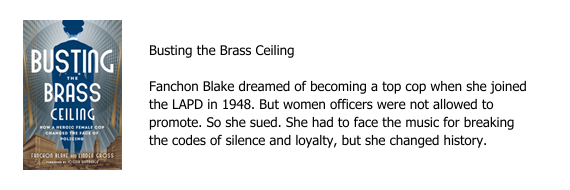When writing a book to boost your business, you’ve got a couple of missions. We’ve talked about the importance of sharing information and stories about yourself that make people want to do business with you. But for that one-two knockout punch that will deliver clients, you have to make your case for the product and/or services you offer.
The operative words here are “make your case.”
Think of an attorney presenting a case to the jury. They present the argument to the jury in an opening statement. Then they present their case piece by piece with each of those pieces supported by evidence, and expert or witness testimony. Each piece builds on the last and is hyper-focused. The attorney might offer character-related evidence, but otherwise, the focal point remains glued on the premise they’re trying to prove.
Why all this talk about lawyers?
You’re the attorney trying to sway a jury of readers and prospects. So you need to make your case as strongly as possible. That starts by figuring out the premise you’re going to try and prove. When coming up with your thesis, which will clearly revolve around your product and/or the service(s) you offer, ask yourself this critical question: Why would the reader care? Hint: It’s probably going to be that the product or service you offer will benefit them in some way.
When writing about something that our lives revolve around, it’s all too tempting to jump in and start talking about why it’s so great, or even about who we are and how we got involved. The reader, however, isn’t going to care a hoot about any of that unless they know that whatever you’re offering helps solve a problem for them. So that’s where you have to start–with them. Make it all about you and what you’re selling and you’ll lose your audience in less time than it takes to eat a cookie. Make it all about them and the fact that you can help improve their lives, and you’re on your way to gaining a client.
So, that’s got to be your thesis. Now you have to line up your proof.
What stories do you have to back up your claims?
- If you got involved with the product(s) or service(s) you offer when you were searching for a solution to a problem you were dealing with or anticipating and the problem is now gone, that’s gold. If you were skeptical about the product(s) or service(s) and became a fan after experiencing them for yourself, that’s even better assuming they’ve resolved the issue that drove you to try them.
- Client success stories can be equally convincing. I always try to cast a wide net and share stories about a variety of different people (age, gender, race, profession, income level, or whatever) and circumstances, so readers have a better chance of seeing themselves in at least one story.
You’ll also want to present research to back up your claims about the problem you’re helping to solve and the solution you offer. It’s easy to go down a research rabbit hole never to be seen again, so don’t go completely crazy when you start snooping online. I would try to find any related statistics or facts about the problem as well as the product’s/service’s effectiveness. It would probably behoove you to dig a little into the history of both as well.
I’ll be talking more about how to research your book in my next couple of posts. For now, let’s jump ahead and assume you’ve got all your research in hand. Let’s even assume that you’ve plugged it all into a detailed outline, along with those personal stories that will give the reader a real sense of who you are and make them want to work with you. Before you really start writing, check yourself by asking these questions:
- Is my premise/thesis clear and clearly articulated?
- Does it relate to the reader/prospective client?
- Have I considered how my information benefits them?
- Have I organized my material logically so that it makes my case?
- Have I supported my premise with research?
- Have I summed up each phase of my argument like I would if I was an attorney presenting my case to a jury?
- Do the sections build on each other and link to each other like the cars on a train or are a few of the cars being left stranded on the tracks?
- If appropriate, do I provide step-by-step information about how to apply the knowledge I’m providing?
- Have I cut out anything that doesn’t give the reader a sense of who I am or strengthen my argument?
Answer yes to all these questions, and you’re well on your way to cranking out a book that will boost your business.




















0 Comments